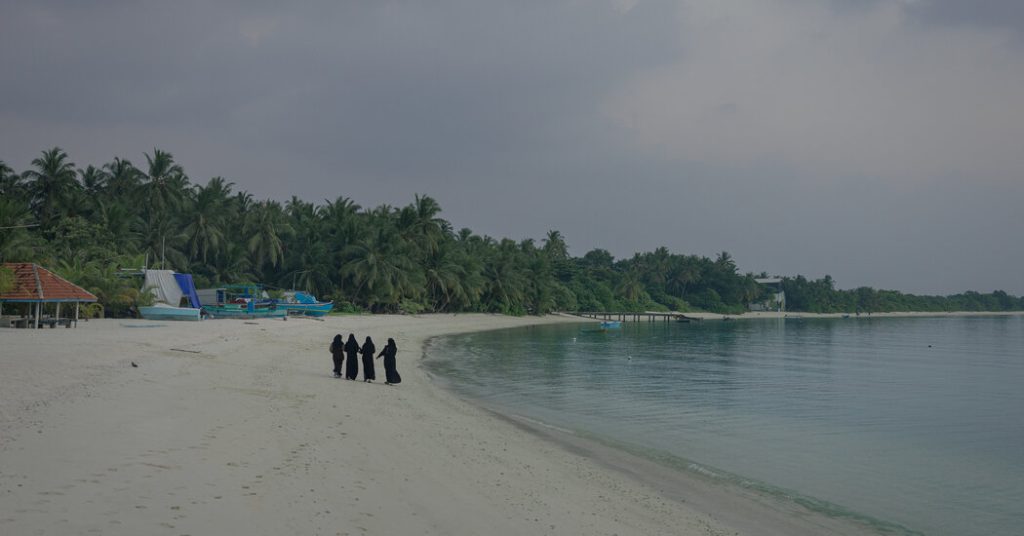Living in the Maldives presents a unique dichotomy between the bustling city of Malé and the remote outer islands. While Malé is a vibrant city, the outer islands are experiencing depopulation as traditional industries like tuna fishing and coconut farming decline. The government is focusing on developing Malé, already one of the most densely populated islands on earth, to accommodate the increasing population. Infrastructure projects, such as sea bridges and housing developments financed by China and India, are transforming the city’s landscape.
President Mohamed Muizzu has proposed ambitious projects, including an undersea tunnel and land reclamation for housing units. However, concerns have been raised about the lack of environmental assessments for such large-scale projects. The delicate ecosystem of the islands is at risk from unchecked development, such as building an airport over a mangrove. The Maldives consists of a unique system of atolls, with most inhabited islands having fewer than 1,000 residents.
Climate change poses a long-term threat to the Maldives, which are only a meter or two above sea level. However, the immediate concern for many Maldivians is the lack of access to essential services like healthcare and education on the outer islands. Families are moving to Malé in search of better opportunities and facilities for their children. The capital city’s cramped conditions and high cost of living present challenges for new residents, many of whom come from small island communities.
For families like that of Maryam Asima, moving to Malé was necessary to access specialized healthcare services, such as IVF treatments. Although she appreciates the “home feeling” of her island and hopes to send her children to school there, she acknowledges the limitations of healthcare facilities. Many families have been displaced by natural disasters, such as the Indian Ocean tsunami of 2004, leading them to seek refuge in larger communities like Malé. The government is offering subsidies and free air travel for families needing medical treatment abroad.
The shift from traditional island life to urban living in Malé is evident in the stories of individuals like Ajuvad and Ahmed Abbas. Ajuvad recalls the challenges of adapting to city life after leaving his remote island at a young age. Ahmed Abbas, on the other hand, appreciates the opportunities and amenities of Malé but still misses the simple and friendly life of his island. The transition from island communities to urban centers poses social and economic challenges for many Maldivians but also presents new opportunities for education and career advancement.
In conclusion, the Maldives is at a crossroads between preserving its traditional island way of life and embracing urban development in Malé. With the challenges of climate change and depopulation on the outer islands, the government is focusing on modernizing the capital city. As more Maldivians move to Malé in search of better opportunities, the delicate balance between tradition and progress will shape the future of this unique nation in the Indian Ocean.


